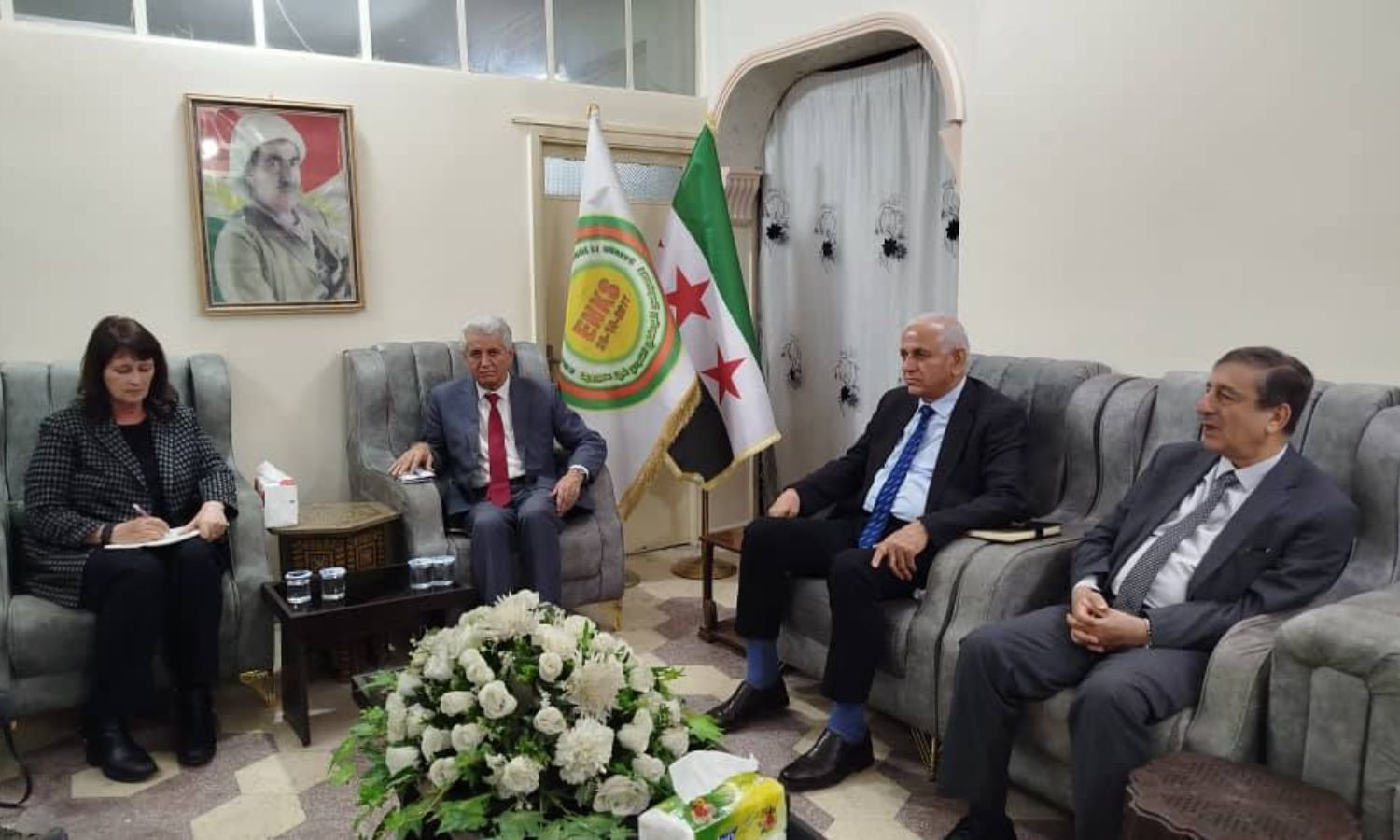The Kurdish National Council (KNC) announced that a long-awaited Kurdish dialogue conference will take place this Saturday, April 26, in northeast Syria, aiming to unify the political vision of the region’s Kurdish factions.
In a statement issued on Tuesday, April 22, the KNC described the conference as “a crucial political milestone” reflecting the aspirations of the Kurdish people in Syria. The initiative, dubbed the Conference for Kurdish Unity and Common Vision, is reportedly supported by both Kurdistan Region President Masoud Barzani and Syrian Democratic Forces (SDF) commander Mazloum Abdi.
Abdi confirmed the date in a post on X (formerly Twitter), calling Kurdish unity “a national necessity for resolving the Kurdish question in Syria.”
The momentum for renewed Kurdish dialogue emerged publicly in March, when the Democratic Union Party (PYD)—the dominant force within the Autonomous Administration—announced plans for a joint conference with the KNC, following a trilateral meeting that included Abdi.
PYD co-chair Berwin Youssef stated that the goal is to establish a consensus-based roadmap among the main Kurdish parties to match the transitional demands facing Syria. Efforts are also underway to produce a formal “Unity and Understanding Document,” according to Luqman Ahmi, a member of the conference’s preparatory committee, who cited strong grassroots calls for unity voiced during recent Newroz celebrations.
Despite repeated attempts at reconciliation, relations between the KNC and PYD have remained strained for years. The KNC has long been excluded from administrative roles in the Autonomous Administration and has accused PYD-aligned armed groups of targeting its members—some of whom remain in detention.
Past dialogue efforts, including internationally backed Kurdish–Kurdish talks, have failed to produce lasting changes on the ground. The PYD continues to dominate political and military affairs in northeast Syria, resisting power-sharing arrangements with rival Kurdish parties.
Whether this upcoming conference can break the deadlock and pave the way for a genuinely inclusive Kurdish political framework remains to be seen. However, its convening signals renewed hope among many Kurds for a unified voice amid Syria’s broader transition.
This article was translated and edited by The Syrian Observer. The Syrian Observer has not verified the content of this story. Responsibility for the information and views set out in this article lies entirely with the author.


